8 Best Dividend Stocks of the Dow
Record corporate earnings in recent years have fueled a dividend bonanza, allowing companies to share more wealth with investors.

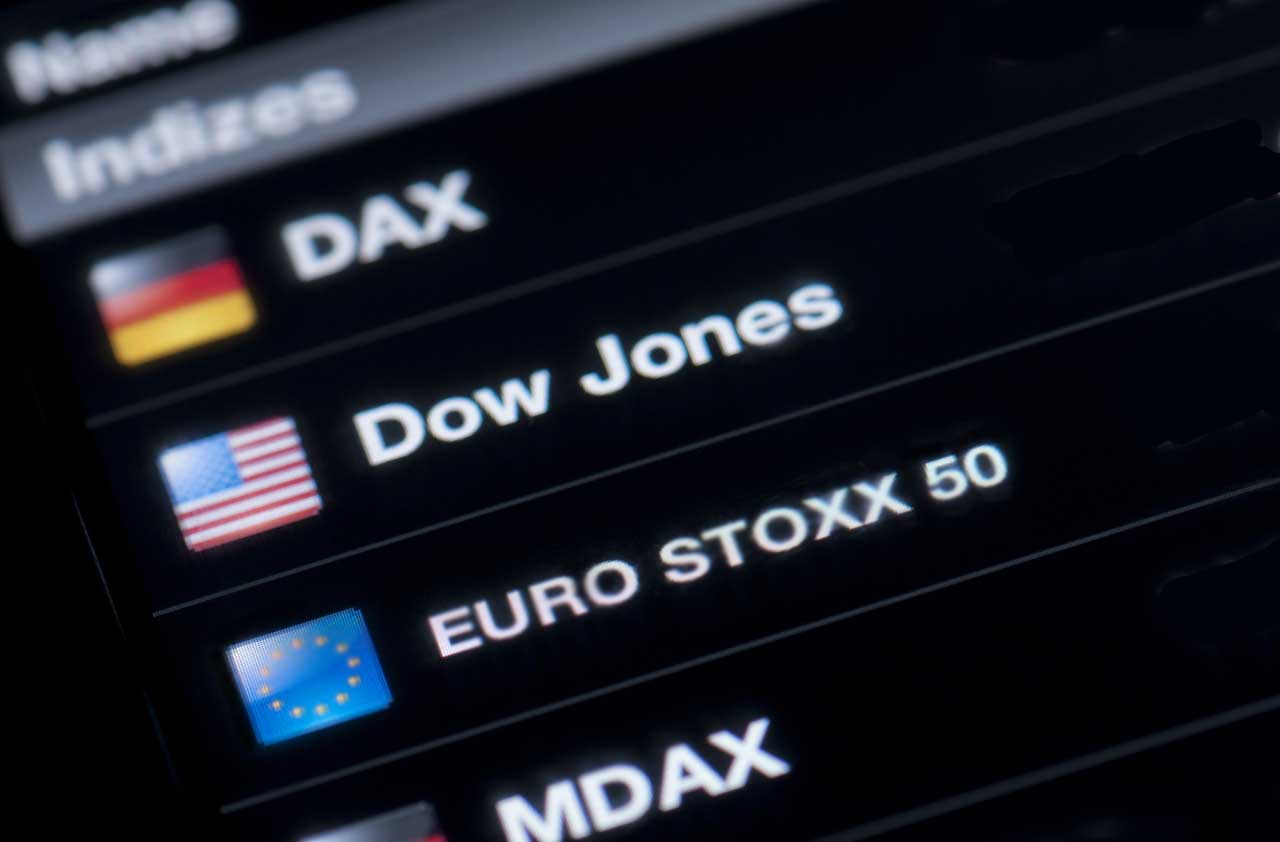
Profit and prosper with the best of Kiplinger's advice on investing, taxes, retirement, personal finance and much more. Delivered daily. Enter your email in the box and click Sign Me Up.
You are now subscribed
Your newsletter sign-up was successful
Want to add more newsletters?

Delivered daily
Kiplinger Today
Profit and prosper with the best of Kiplinger's advice on investing, taxes, retirement, personal finance and much more delivered daily. Smart money moves start here.

Sent five days a week
Kiplinger A Step Ahead
Get practical help to make better financial decisions in your everyday life, from spending to savings on top deals.

Delivered daily
Kiplinger Closing Bell
Get today's biggest financial and investing headlines delivered to your inbox every day the U.S. stock market is open.

Sent twice a week
Kiplinger Adviser Intel
Financial pros across the country share best practices and fresh tactics to preserve and grow your wealth.

Delivered weekly
Kiplinger Tax Tips
Trim your federal and state tax bills with practical tax-planning and tax-cutting strategies.

Sent twice a week
Kiplinger Retirement Tips
Your twice-a-week guide to planning and enjoying a financially secure and richly rewarding retirement

Sent bimonthly.
Kiplinger Adviser Angle
Insights for advisers, wealth managers and other financial professionals.

Sent twice a week
Kiplinger Investing Weekly
Your twice-a-week roundup of promising stocks, funds, companies and industries you should consider, ones you should avoid, and why.

Sent weekly for six weeks
Kiplinger Invest for Retirement
Your step-by-step six-part series on how to invest for retirement, from devising a successful strategy to exactly which investments to choose.
Record corporate earnings in recent years have fueled a dividend bonanza, allowing companies to share more wealth with investors. But as the global economy weakens and earnings growth slows, dividend-focused investors face two big questions: First, is their current dividend safe? And second, what kind of future increases are likely?
The blue-chip Dow Jones industrial average has always been a rich hunting ground for dividend investors. So from the current roster of 30 stocks we selected eight that we believe provide attractive solutions for different investing needs.
All eight of the companies are so financially strong that the chances of any of them cutting the dividend are minuscule. With that as a base assumption, we chose our stocks by weighing current yield, dividend growth outlook for the next few years, and longer-term stock-price appreciation potential.
Picks are listed alphabetically. Returns, share prices and related data are as of November 18. Unless otherwise indicated, price-earnings ratios are based on estimated 2016 earnings.
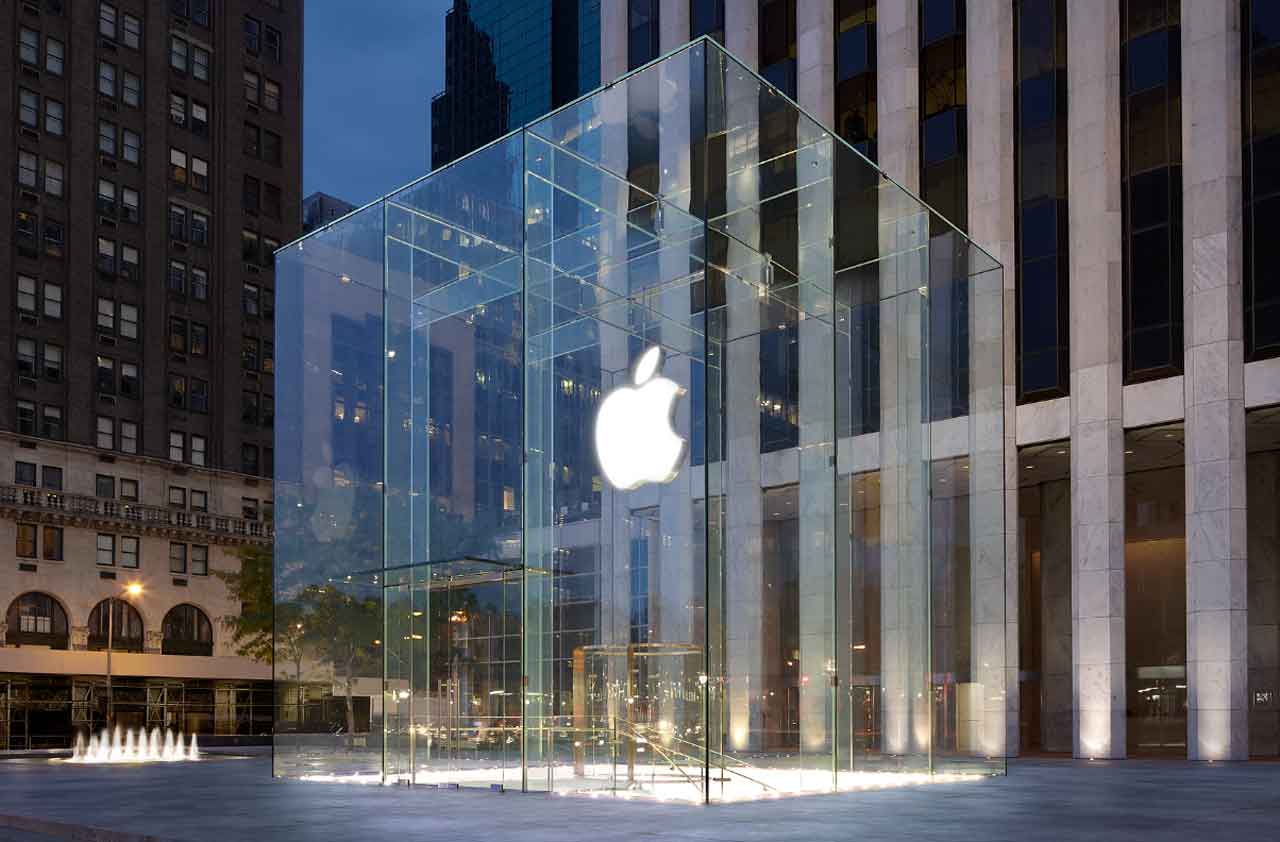
Apple
- Share price: $117.29Market capitalization: $654 billionAnnual dividend rate per share: $2.08Dividend yield: 1.8%Price-earnings ratio: 12 (based on estimated earnings for the fiscal year that ends next September)Main appeal: Low stock valuation, hefty dividend increases likely
- SEE ALSO: Big Tech Stocks That Pay Big Dividends
Recurring doubts about Apple's long-term growth potential have dogged the stock (AAPL) in recent months. That accounts for Apple's low valuation — at 12 times estimated earnings for the fiscal year that ends next September, its P/E is one of the lowest of the 30 stocks in the Dow industrials. A consolation prize for frustrated shareholders who think the stock deserves better is that Apple has been boosting its payout regularly and by significant amounts since it reintroduced a dividend in 2012. And given the massive amount of cash and investments in the company’s treasury—more than $200 billion—and huge profits that the company retains from about $250 billion in annual sales, Apple's dividend largesse is almost certain to continue.
The stock's current yield of 1.8% isn't a showstopper by itself, but the dividend's growth has been lush. An investor who owned 100 shares in mid 2012 earned annual dividends of $1,060. Now, after dividend hikes and a 7-for-1 stock split in 2014, that same investor earns annual income of $1,456 — a 37% increase in three years. Apple pledged last April to return $200 billion to shareholders by March 2017. Although most of that sum will be used for stock buybacks, "We know that the dividend is very important to many of our investors," CEO Tim Cook said at the time. He followed that by announcing a 10.6% dividend boost, to the current annual rate of $2.08 per share. That's just roughly 20% of what Apple is expected to earn in the current fiscal year and is an even smaller percentage of Apple’s free cash flow per share (cash profits after the capital expenditures necessary to maintain the business). The point is, Apple can afford to be more generous.
As for fear that profit growth may be about to stagnate, Goldman Sachs doesn't buy it. The brokerage sees Apple’s earnings rising 13%, to $10.39 per share, in fiscal 2016 and then 18%, to $12.22, in the year that ends in September 2017, driven by continued demand for iPhones, a sales revival for the redesigned iPad, and growing recurring revenue from the company's content and services including TV, video and music. Relative to its expected growth, Apple is "significantly undervalued," Goldman says.

General Electric
- Share price: $30.52Market capitalization: $308 billionAnnual dividend rate per share: $0.92Dividend yield: 3.0%Price-earnings ratio: 20Main appeal: Attractive yield, plus healthy appreciation potential if the economy picks up
General Electric (GE) has long been considered a microcosm of the global economy. But in the years before the Great Recession, the giant conglomerate wanted too much of what was then a good thing: the financial-services business. That financial-services exposure turned toxic for the company after the 2008 economic crash, slashing profit at the huge GE Capital division. Since then, GE has chosen to reemphasize its industrial businesses — such as power plants, jet engines and oilfield equipment — and mostly leave finance behind. As part of that plan, GE this fall will complete the split-off of its retail banking business as Synchrony Financial. The corporate makeover ultimately will mean that more than 90% of GE's earnings will come from its industrial units, up from 43% in 2008
For shareholders, GE's makeover will leave the company easier to understand as it focuses on the big-ticket equipment it dominates in many markets. And increasingly GE profits not just by selling industrial goods but also by tending them via long-term servicing contracts. Earnings have inched higher, from $1.06 per share in 2010 to an expected $1.31 this year, excluding write-offs. Analysts on average estimate profits of $1.51 per share in 2016 on sales of $126 billion.
With its recovery, GE has made rebuilding the dividend a priority, after hacking it by two-thirds in 2009. Brokerage Barclays expects the annual dividend rate to rise to $1.08 per share in 2017. The last increase: a 4.5% hike in January. Although GE's bottom line is tied to the economy's health, brokerage UBS notes that the company has boosted profit margins this year, even amid tepid global growth. That has attracted billionaire Nelson Peltz, who calls the stock "underappreciated" and has built a 1% stake worth $2.5 billion.
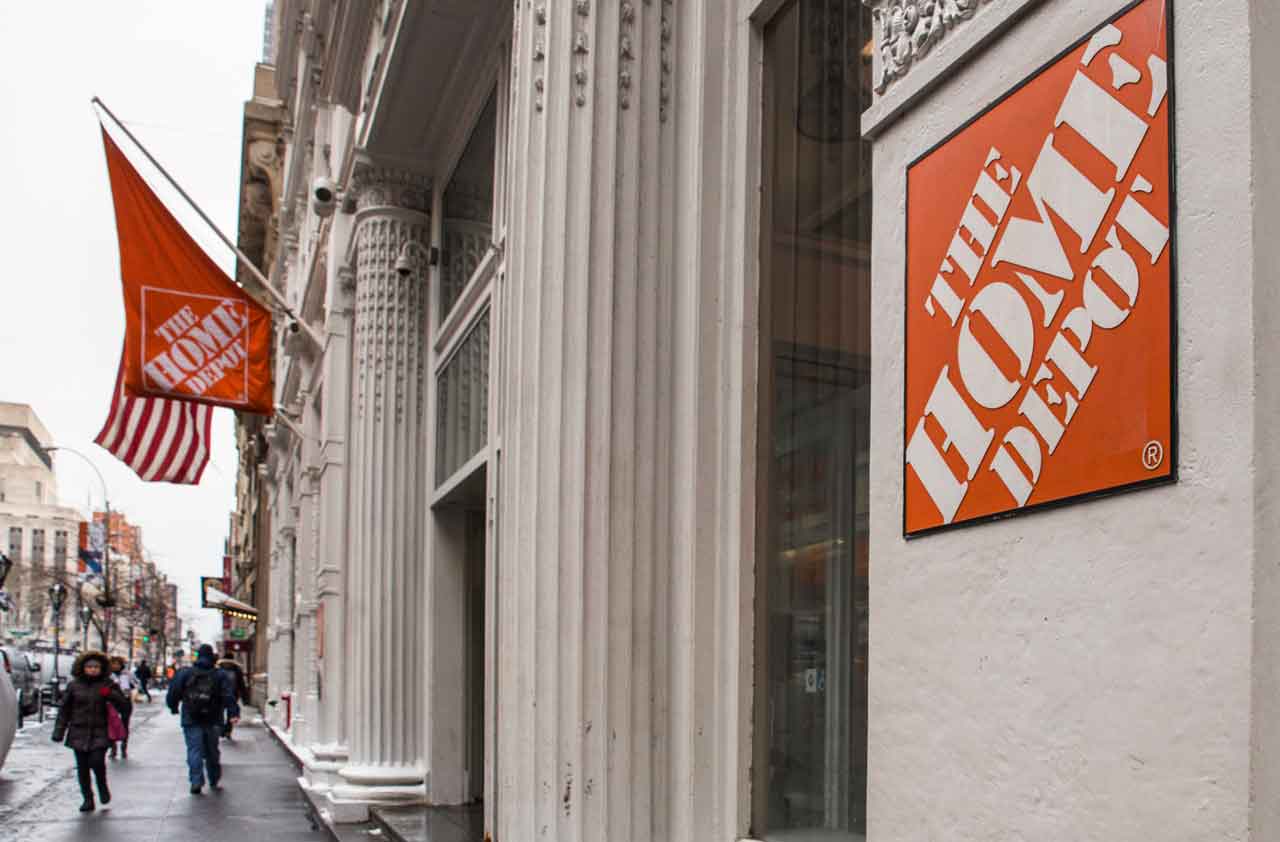
Home Depot
- Share price: $126.54Market capitalization: $163 billionAnnual dividend rate per share: $2.36Dividend yield: 1.9%Price-earnings ratio: 21 (based on the fiscal year that ends in January 2017)Main appeal: A strong commitment to boosting dividends and a stock that should perform well with an improving economy
The home-improvement retailer has continued to shine this year as a capital-appreciation play with a bonus: a fast-growing dividend. Home Depot shares are up 22.3% (including dividends) year-to-date, the fifth-best performance among the 30 Dow stocks. The stock (HD) has been powered by surprisingly strong sales and earnings as Americans keep spending on their homes. The retailer's revenues rose 5.5% in the first nine months of the fiscal year that ends in January, and per-share profits jumped 17% from the same period a year earlier. On top of the stock's advance, Home Depot raised its dividend nearly 26% last March, the second-biggest percentage boost so far this year within the Dow industrials. The company says its target over time is to pay out 50% of profit as dividends. The current annual dividend rate of $2.36 per share is about 44% of what Home Depot is expected to earn in the current fiscal year, so the retailer has room to keep raising the dividend.
Although housing markets have cooled in parts of the U.S., overall existing home sales this year are expected to reach their highest level since 2007. That's important for Home Depot because housing turnover feeds home-improvement-related sales at its 2,273 stores. What's more, the company's restructuring after the financial crisis, including a renewed focus on customer service, set Home Depot up to benefit once spending revived. But with the stock now priced at 21 times estimated earnings for the fiscal year that ends in January 2017, the shares are vulnerable if recent sales weakness at general retailers spreads to the home-improvement market. For now, bulls, including brokerage Robert W. Baird, say the trend still is Home Depot’s friend. With more owners returning to positive equity as home prices rise and with household formations increasing, "expect continued strength in home-related expenditures into 2016," Baird says.
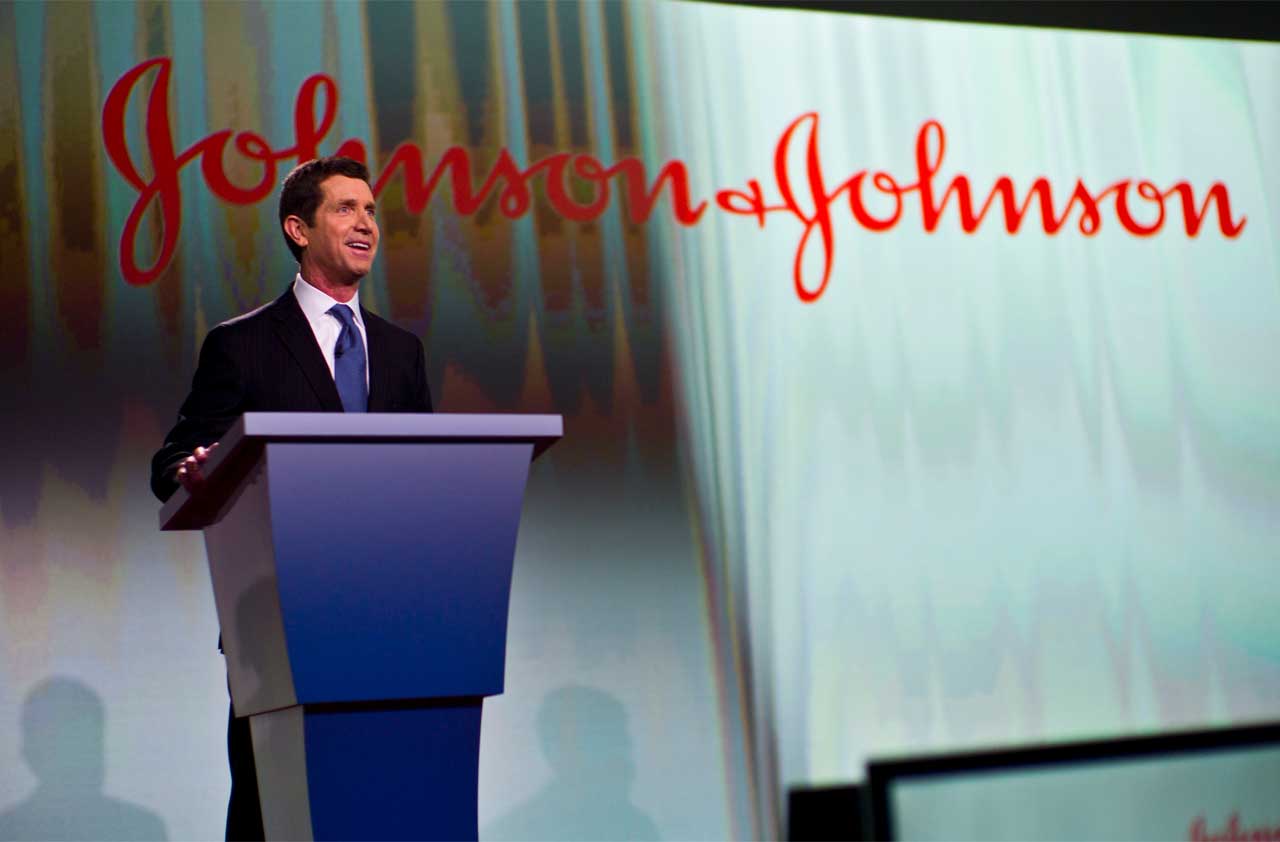
Johnson & Johnson
- Share price: $102.67Market capitalization: $284 billionAnnual dividend rate per share: $3.00Dividend yield: 2.9%Price-earnings ratio: 16Main appeal: Attractive yield, plus long track record of dependable dividend increases
- SEE ALSO: 7 Great Stocks That Keep Raising Dividends
Only a handful of companies can boast a more reliable dividend record than Johnson & Johnson (JNJ). The health care titan has raised its payout for 53 straight years, most recently by 7% in June. That track record — on top of a current yield of 2.9% — may be worth more to investors in the next few years if the bull market stumbles. And even if the bull keeps going, conservative investors might prefer a slower-growing stalwart such as J&J over sexier but riskier options.
J&J has become the world's largest diversified health care company, with about $70 billion in annual sales divided among three divisions: prescription drugs; medical devices, such as stents and surgical tools; and consumer-product brands, including Tylenol, Neutrogena and Band-Aids. The company's public image took a hit in 2010 and 2011 amid a series of manufacturing-quality problems and product recalls. Fixing those issues depressed J&J's earnings, which tumbled 27%, to $3.49 per share, in 2011. Since then, earnings have resumed their uptrend and are expected to reach $6.18 per share this year. The company still faces potential legal costs for certain product-liability problems, and a strong dollar also is a headwind for J&J, which derives 49% of its sales abroad.
But longer-term, growth should get a boost from new drugs, including blood thinner Xarelto and diabetes treatment Invokana, and from innovation in medical devices. What's more, brokerage Deutsche Bank notes, J&J's finances are strong enough to allow for a new $10 billion stock buyback, as well as fund future acquisitions and support dividend growth. With a P/E of 16, about the same as the overall stock market, the brokerage considers the stock undervalued.
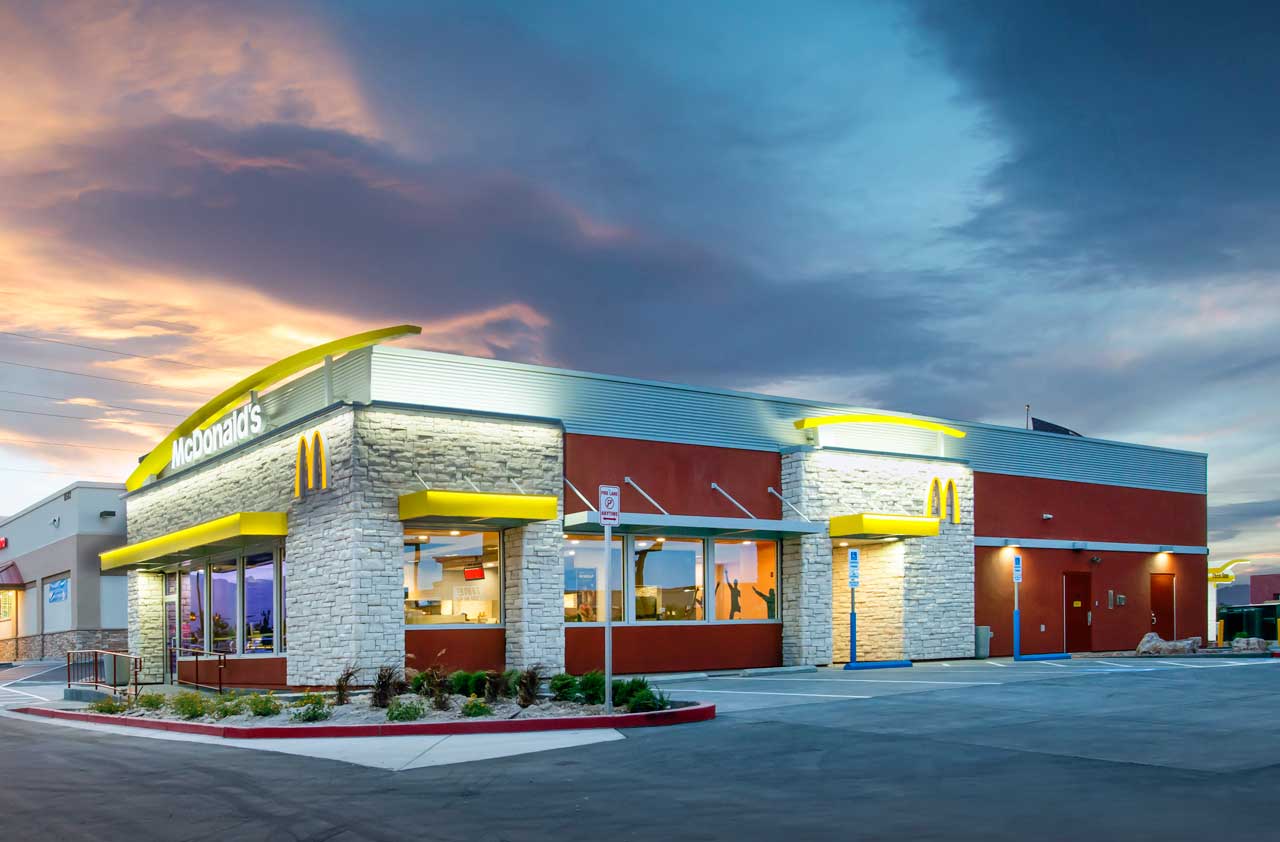
McDonald's
- Share price: $112.53Market capitalization: $103 billionAnnual dividend rate per share: $3.56Dividend yield: 3.2%Price-earnings ratio: 21Main appeal: Attractive yield and a business that’s starting to recover
For dividend-focused investors who also can stomach above-average risk, McDonald's (MCD) is worth a look. After a long stretch of falling U.S. sales, the fast-food king is showing signs of a turnaround. Third-quarter sales at U.S. stores open at least a year (a key measure for restaurant chains) rose 0.9% from the year-earlier period, the first gain in two years. More important, new CEO Steve Easterbrook says he expects the sales rebound to continue in the fourth quarter as McDonald's rolls out all-day breakfast. Another element of the turnaround plan is a further shift from company-owned stores to franchises, aimed at slashing expenses (including labor costs). McDonald's wants 93% of its stores to be franchisee-owned by 2019, up from 81% now.
The company's dividend also figures in the effort to revive the Golden Arches' image. The dividend will rise 4.7% in December, to an annualized $3.56 per share. That puts the stock's yield at 3.2%, compared with 2.5% for the full Dow industrials. And the company left little doubt about another boost in 2016: McDonald's plans to return $30 billion to shareholders via stock buybacks and dividends in the three years through 2016, $10 billion more than its previous goal.
Research firm Morningstar, among others, lauds the progress under Easterbrook, 48, who was McDonald’s chief brand officer before being tapped to run the company. Particularly impressive, Morningstar says, was how quickly the company was able to launch the all-day breakfast campaign. But a key risk is that the sales rebound could fizzle. Another risk: McDonald's is adding more debt to finance new buybacks and dividend hikes. Still, upbeat investors have sent the stock to a record high. And although Mickey D’s isn’t cheap at 21 times estimated 2016 earnings, a continued turnaround could lure back growth investors who fled in recent years.

Microsoft
- Share price: $53.85Market capitalization: $430 billionAnnual dividend rate per share: $1.44Dividend yield: 2.7%Price-earnings ratio: 19 (based on the fiscal year that ends next June)Main appeal: Attractive yield plus strong record of hefty dividend growth
- SEE ALSO: Apple, Intel, Microsoft, Seagate — Four Core Tech Stocks
As a dependable dividend payer, Microsoft now offers the same kind of security as its blue chip peers, such as Johnson & Johnson. In fact, only three U.S. companies carry the top triple-A credit rating: Microsoft (MSFT), J&J and Exxon Mobil (XOM). The important difference is that the software leader in recent years has been boosting its dividend at a faster rate than most of the other 29 Dow stocks, a trend that’s likely to continue. The latest increase: a 16% hike to be paid in December. The payout is backed by $99 billion in cash and securities on Microsoft's balance sheet — and by the firm's stated commitment to share more of its profit directly with investors.
The stock, meanwhile, has rallied this year because of growing conviction that Microsoft is finally getting its growth groove back, after years of corporate missteps. The company must transform its personal computer-centered business to compete aggressively in the era of mobile communications and the cloud (that is, delivering software and computing via the Internet).
CEO Satya Nadella, who succeeded Steve Ballmer last February, seems off to a good start. In the July-September quarter, the strong dollar hampered results, and earnings edged up a modest 2%, to $4.6 billion, from the same period a year earlier. But Wall Street liked what it saw under the surface: a steep jump in business purchases of cloud computing services, and better-than-expected results from the PC side, thanks in part to the launch of the Windows 10 operating system upgrade. Overall, the quarter saw "strong performance" across the firm, brokerage CLSA says. Growth expectations are still modest in the short term, with operating earnings expected to rise 5%, to $2.77 per share, on sales of $93 billion in the current fiscal year, which ends June 30. But that makes a low bar for Nadella to hurdle.
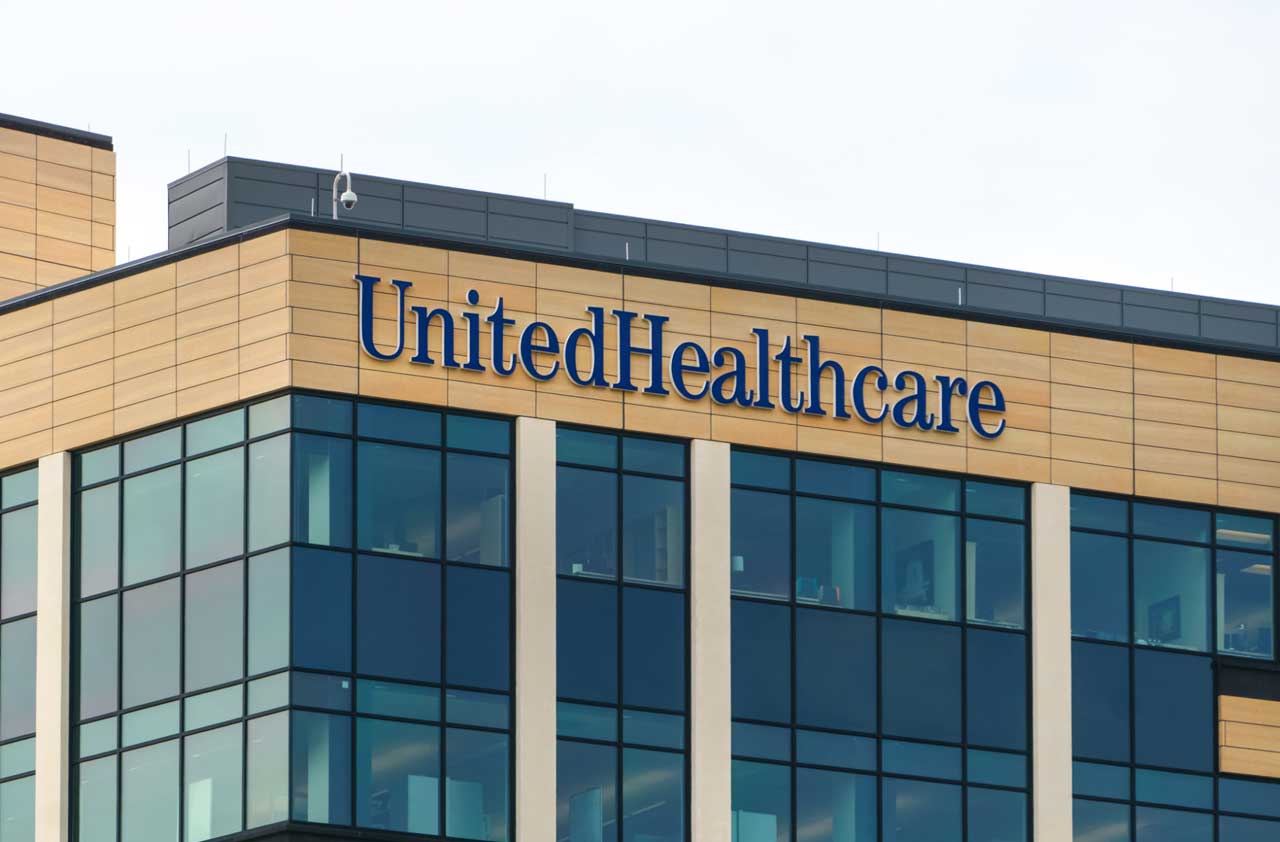
UnitedHealth Group
- Share price: $117.25Market capitalization: $112 billionAnnual dividend rate per share: $2.00Dividend yield: 1.7%Price-earnings ratio: 16Main appeal: A bet on U.S. growth and a strong commitment to boosting dividends
The Affordable Care Act has brought a potential bounty for health insurers by boosting the number of Americans in the health care system. But the Act also creates more government oversight and puts restrictions on companies' profitability. UnitedHealth (UNH), the biggest health insurer (with more than 45 million enrollees), so far has deftly navigated this sea change. Revenue is on track to reach a record $156 billion this year, and Wall Street expects the company to earn $6.31 per share, up 11% from 2014. Investors like what they see: The stock has climbed 17.4% year-to-date, after a 36.1% gain in 2014. Shareholders also have been rewarded with the biggest percentage dividend hike among the 30 Dow stocks this year: a 33% boost in June.
In the near term, however, the company could see profit margins pinched as expenses rise for expanded health programs and for upgrades to UnitedHealth's popular Medicare programs. In the third quarter, net income edged up just 1%. But bulls, including brokerage Raymond James, say the sheer size and broad diversification of UnitedHealth's businesses give it a crucial advantage over many rivals in the longer term. Besides its health insurance business, UnitedHealth is a major prescription drug distributor and also provides many other services, such as back-office functions, to health care providers via its fast-growing Optum unit. Wall Street sees UnitedHealth's big dividend increases over the past few years as a sign of management's confidence in the company's earnings potential. And with the $2-a-share annualized dividend accounting for a modest 27% of estimated 2016 profits, UnitedHealth has plenty of leeway to keep increasing the payout.
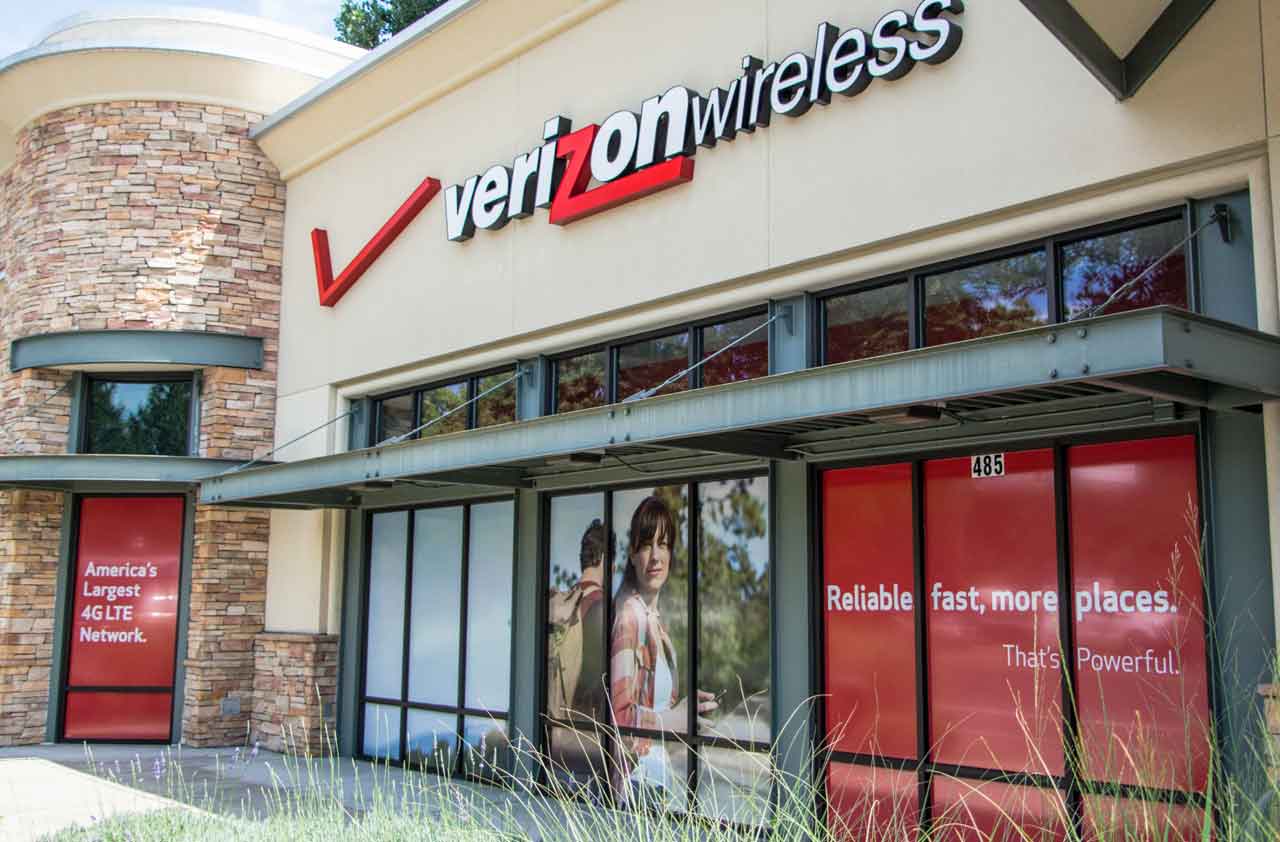
Verizon Communications
- Share price: $45.38Market capitalization: $185 billionAnnual dividend rate per share: $2.26Dividend yield: 5.0%Price-earnings ratio: 11Main appeal: High yield plus modest dividend growth
- SEE ALSO: Best Dividend Stocks of the S&P 500
Investors haven’t flocked to Verizon in recent years for the excitement of sharp share-price gains. The telecom giant's stock (VZ) has mostly been stuck between $45 and $50 since 2012. But if it's a high dividend yield you want — and low probability that your payout could be cut — Verizon is a solid choice. At 5%, the stock's yield is the highest among the Dow 30 issues. It's more than twice the 2.3% yield on a 10-year U.S. Treasury note. And Verizon has raised its dividend every year since 2007, albeit lately at a low-single-digit percentage pace.
Verizon was born from the 2000 merger of phone utilities Bell Atlantic and GTE, but the company's business now is primarily wireless. With 111 million retail customers, it's the biggest U.S. wireless firm and by many accounts the best. Its customers have been notoriously loyal. But keeping its network in top shape means heavy capital spending, and the company's ability to boost prices is limited by heated competition from the likes of AT&T (T) and Sprint (S). At the same time, Verizon is in the process of selling landline operations in a number of states, so it can focus instead on new services, such as a wireless video network aimed at millennials.
In the near term, Verizon’s shifting priorities will dampen overall results: Analysts expect earnings of $3.99 per share in 2016, just 2 cents more than the 2015 estimate. But brokerage Oppenheimer argues that the stock deserves a higher price based on the long-term outlook for the wireless business. Verizon raised its dividend 2.7% in November and now pays out about 57% of profit in dividends. That payout percentage is a "comfortable" base that will allow for continued dividend increases, brokerage RBC Capital Markets says.
Profit and prosper with the best of Kiplinger's advice on investing, taxes, retirement, personal finance and much more. Delivered daily. Enter your email in the box and click Sign Me Up.

-
 Over 65? Here's What the New $6K 'Senior Deduction' Means for Medicare IRMAA Costs
Over 65? Here's What the New $6K 'Senior Deduction' Means for Medicare IRMAA CostsTax Breaks A new deduction for people over age 65 has some thinking about Medicare premiums and MAGI strategy.
-
 U.S. Congress to End Emergency Tax Bill Over $6,000 Senior Deduction and Tip, Overtime Tax Breaks in D.C.
U.S. Congress to End Emergency Tax Bill Over $6,000 Senior Deduction and Tip, Overtime Tax Breaks in D.C.Tax Law Here's how taxpayers can amend their already-filed income tax returns amid a potentially looming legal battle on Capitol Hill.
-
 5 Investing Rules You Can Steal From Millennials
5 Investing Rules You Can Steal From MillennialsMillennials are reshaping the investing landscape. See how the tech-savvy generation is approaching capital markets – and the strategies you can take from them.
-
 Nasdaq Leads a Rocky Risk-On Rally: Stock Market Today
Nasdaq Leads a Rocky Risk-On Rally: Stock Market TodayAnother worrying bout of late-session weakness couldn't take down the main equity indexes on Wednesday.
-
 Stocks Make More Big Up and Down Moves: Stock Market Today
Stocks Make More Big Up and Down Moves: Stock Market TodayThe impact of revolutionary technology has replaced world-changing trade policy as the major variable for markets, with mixed results for sectors and stocks.
-
 Small Caps Step Up, Tech Is Still a Drag: Stock Market Today
Small Caps Step Up, Tech Is Still a Drag: Stock Market TodayEarly strength gave way to AI skepticism again as a volatile trading week ended on another mixed note.
-
 AI Unwind Takes 2% Off the Nasdaq: Stock Market Today
AI Unwind Takes 2% Off the Nasdaq: Stock Market TodayMarkets are paying more and more attention to hyperscalers' plans to spend more and more money on artificial intelligence.
-
 Strong Jobs Report Leaves Markets Flat: Stock Market Today
Strong Jobs Report Leaves Markets Flat: Stock Market TodayInvestors, traders and speculators are taking time to weigh the latest labor market data against their hopes for lower interest rates.
-
 Dow Hits New High Ahead of January Jobs Report: Stock Market Today
Dow Hits New High Ahead of January Jobs Report: Stock Market TodayA weak reading on December retail sales was in focus ahead of Wednesday's delayed labor market data.
-
 Tech Stocks Fuel Strong Start to the Week: Stock Market Today
Tech Stocks Fuel Strong Start to the Week: Stock Market TodayThe blue-chip Dow Jones Industrial Average extended its run above 50,000 on Monday and there are plenty of catalysts to keep the 30-stock index climbing.
-
 Dow Adds 1,206 Points to Top 50,000: Stock Market Today
Dow Adds 1,206 Points to Top 50,000: Stock Market TodayThe S&P 500 and Nasdaq also had strong finishes to a volatile week, with beaten-down tech stocks outperforming.
